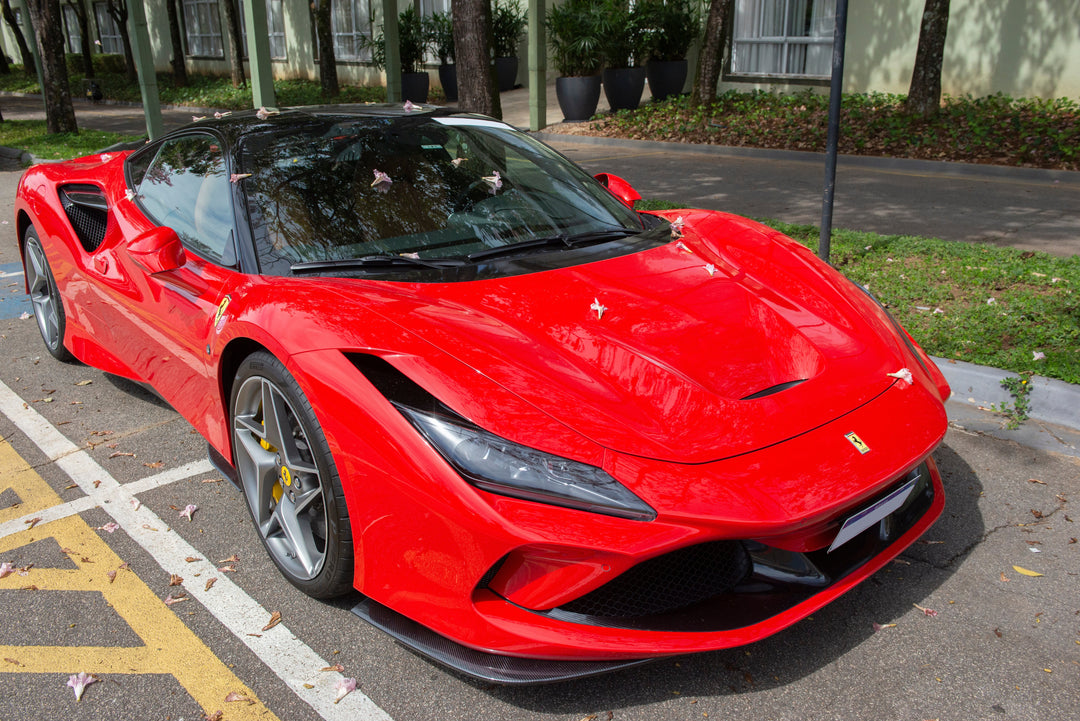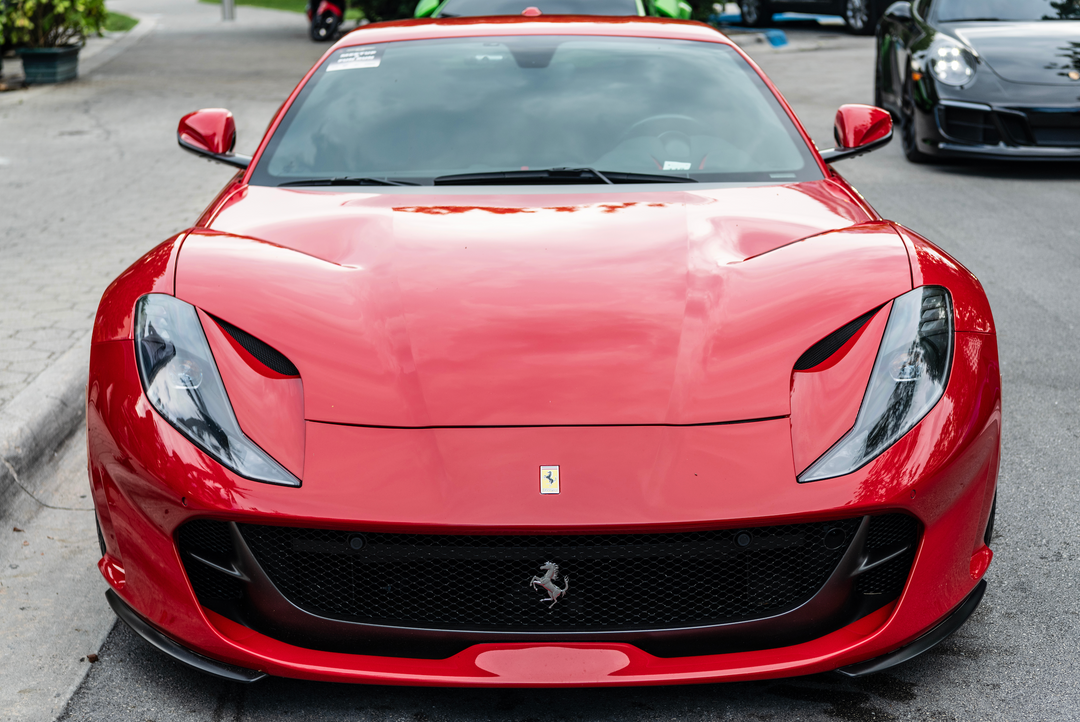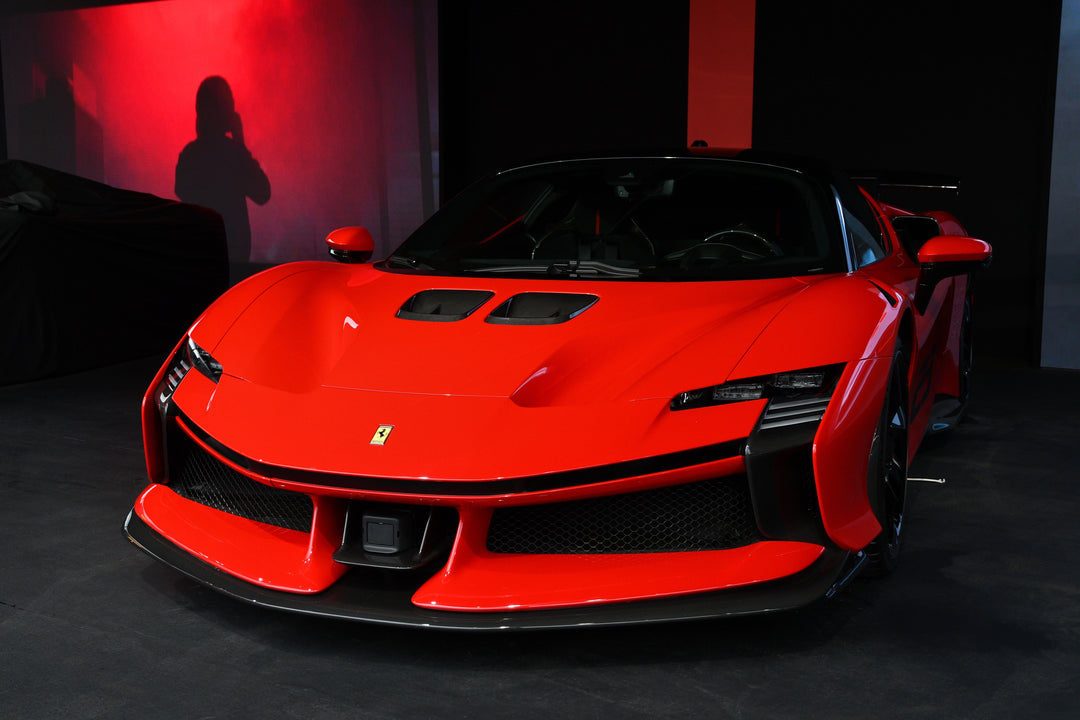Muscle Cars and Paint Protection Film (PPF) – Why It’s a Must-Have
Muscle cars are more than vehicles—they’re symbols of raw power, bold design, and unrelenting performance. Whether you own a classic Dodge Charger, a modern Chevy Camaro, or a roaring Ford Mustang, muscle cars embody a legacy that demands attention and care. But keeping these high-performance machines looking as aggressive as they drive isn’t easy. The road is full of hazards like flying debris, harsh weather, and everyday wear that can chip, scratch, or fade the paint.
Paint Protection Film (PPF) is the ultimate solution for muscle car enthusiasts. This transparent, durable shield preserves your car’s paintwork, ensuring it looks as fierce as it performs. In this blog, we’ll explore why PPF is essential for muscle cars, how it works, and how it protects your investment.
What is Paint Protection Film (PPF)?
PPF is a clear, high-tech urethane film applied to a car’s exterior to protect its paintwork from physical damage and environmental wear. Originally developed for military use, PPF is now a go-to for car owners who want to keep their vehicles in showroom condition. With advanced features like self-healing technology, UV resistance, and hydrophobic properties, PPF offers unparalleled protection for your muscle car.
Why Muscle Cars Need PPF
-
Protection from Road Debris
Muscle cars are often driven with spirit—whether it’s cruising highways or tearing up the track. This exposes them to road debris like gravel, rocks, and sand, which can chip and scratch the paint. PPF acts as a barrier, absorbing these impacts and keeping your car’s exterior flawless. -
Preservation of Unique Paint Finishes
Many muscle cars feature bold, eye-catching colors and custom paint jobs. From metallic finishes to matte designs, these paints are expensive to repair. PPF preserves your car’s vibrant finish, ensuring it remains a head-turner. -
UV and Weather Resistance
Prolonged exposure to sunlight can fade and oxidize paint, while harsh weather conditions like rain, snow, and hail can wear down the finish. PPF provides UV protection and weather resistance, keeping your muscle car’s paint looking fresh and vibrant. -
Self-Healing Technology
High-quality PPF is designed to self-heal minor scratches and swirl marks when exposed to heat. This feature ensures your muscle car retains its pristine look without constant maintenance. -
Enhanced Resale Value
A well-maintained muscle car holds its value better in the resale market. By protecting the original paint with PPF, you ensure your car remains attractive to collectors and enthusiasts. -
Invisible Protection
Muscle cars are known for their aggressive styling, from wide fenders to bold grilles. PPF is virtually invisible when professionally applied, ensuring the design remains untouched while providing robust protection.
Key Areas to Apply PPF on Muscle Cars
While a full-body PPF wrap provides the ultimate protection, certain areas are more vulnerable and should be prioritized:
-
Front Bumper and Hood
These high-impact areas face the most exposure to road debris, making them critical for PPF application. -
Side Mirrors and Rocker Panels
These parts are prone to scratches and abrasions from gravel and other debris kicked up by the tires. -
Rear Wheel Arches
Wide rear tires on muscle cars often throw debris onto the wheel arches, causing chips and scratches. -
Door Handles and Edges
Frequent contact with these areas can lead to scuffs and scratches, which PPF can prevent. -
Rear Diffuser and Trunk Area
These components are often susceptible to scratches during parking or loading.
PPF vs. Ceramic Coating: Which is Best for Muscle Cars?
Muscle car owners often wonder whether to choose PPF or ceramic coating for their vehicles. Here’s a quick comparison:
- PPF (Paint Protection Film): Provides a physical barrier that protects against rock chips, scratches, and abrasions. It’s ideal for high-impact areas and long-term durability.
- Ceramic Coating: Adds a hydrophobic layer that repels water, dirt, and grime while enhancing gloss. However, it doesn’t protect against physical damage.
For the ultimate protection, many muscle car owners combine the two. PPF is applied first to shield against impacts, followed by a ceramic coating to enhance shine and make maintenance easier.
Choosing the Right PPF for Muscle Cars
Not all PPF products are created equal. When selecting PPF for your muscle car, consider these factors:
-
High Optical Clarity
Premium PPF ensures the film is virtually invisible and doesn’t alter the car’s original color or finish. -
Self-Healing Properties
Look for PPF with self-healing technology to repair minor scratches and swirl marks when exposed to heat. -
Durability and Warranty
Choose a PPF product with a long warranty (5-10 years) to ensure lasting performance. -
Trusted Brands
Reputable brands like XPEL, SunTek, and 3M are known for their quality and reliability in protecting vehicles.
The PPF Installation Process for Muscle Cars
PPF installation for muscle cars requires precision due to their unique designs and aggressive styling. Here’s what the process involves:
-
Surface Preparation
The car’s exterior is thoroughly cleaned and polished to remove any debris or imperfections. -
Custom Cutting and Application
Advanced software ensures the PPF is custom-cut to fit the specific contours of your muscle car. -
Smoothing and Alignment
The film is applied to each panel, smoothed to eliminate air bubbles, and aligned seamlessly. -
Curing and Inspection
The film is left to cure for 24-48 hours and inspected to ensure flawless application.
Maintaining PPF on Muscle Cars
After installing PPF, follow these maintenance tips to keep it in top condition:
-
Hand Washing Only
Avoid automatic car washes and use a soft microfiber cloth with pH-neutral cleaning products. -
Inspect Regularly
Check for any signs of lifting edges or damage, especially after long drives or harsh weather. -
Avoid Harsh Chemicals
Use cleaning products specifically designed for PPF to prevent degradation.
Why Muscle Car Owners Love PPF
For muscle car enthusiasts, PPF is more than just protection—it’s peace of mind. Whether cruising on highways, racing on the track, or showcasing your car at events, PPF ensures your vehicle remains as bold and beautiful as the day you got it.
Conclusion
Muscle cars are icons of power and performance, and they deserve protection that matches their legacy. Paint Protection Film (PPF) is an essential investment that preserves their beauty, enhances their longevity, and safeguards their value. From preventing rock chips and scratches to protecting against UV damage, PPF ensures your muscle car stays in pristine condition.
Whether you own a Dodge Charger, Chevy Camaro, Ford Mustang, or any other muscle car, PPF is the ultimate upgrade to keep your ride looking its best. Because when you drive a legend, only the best protection will do.
Ready to protect your muscle car with PPF? Contact a certified installer today to give your vehicle the shield it deserves. Drive with confidence, knowing your car is protected from the elements.





Leave a comment